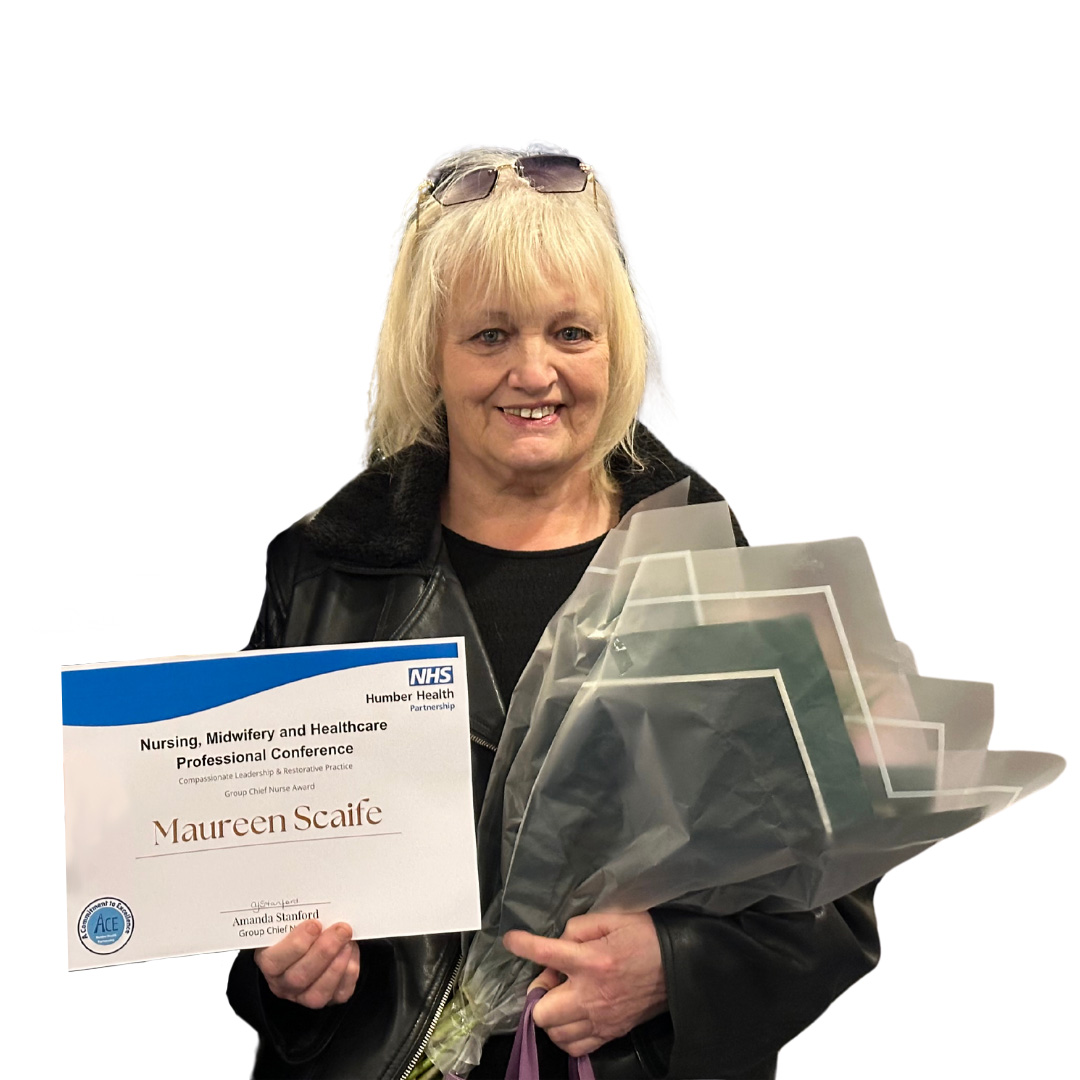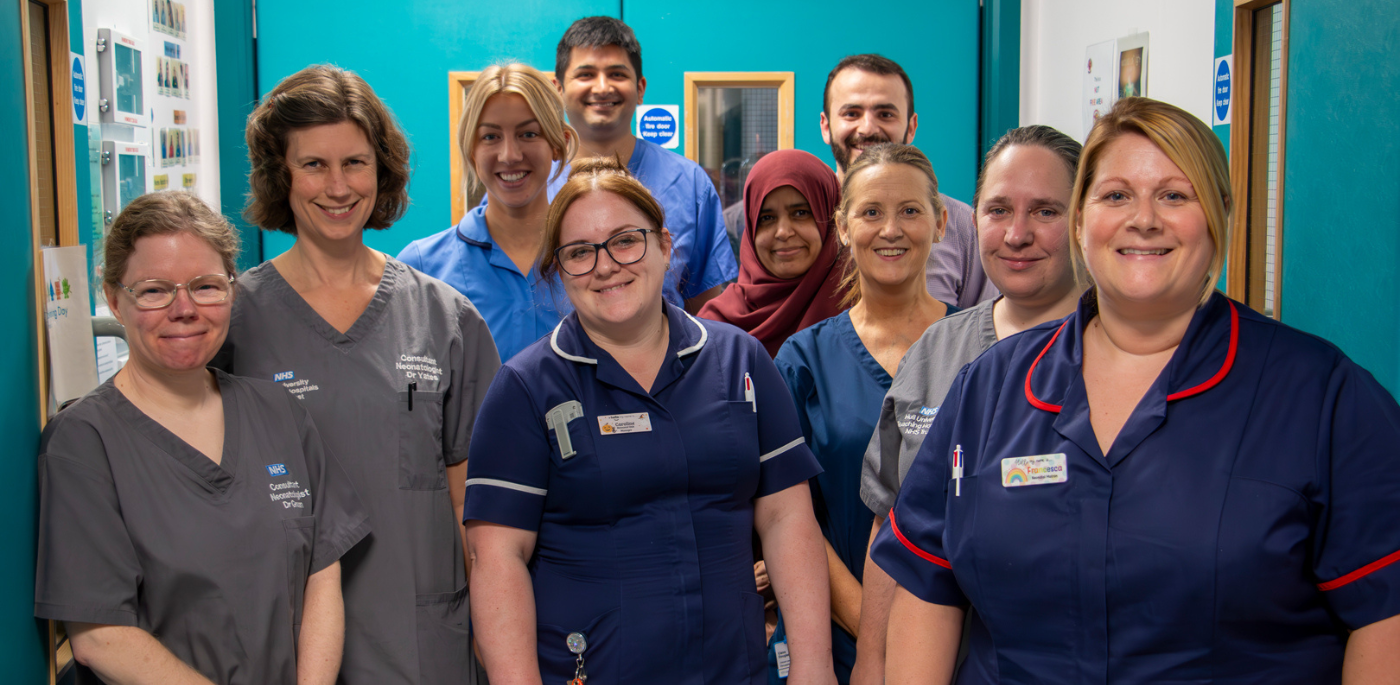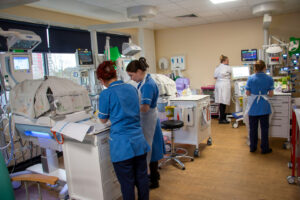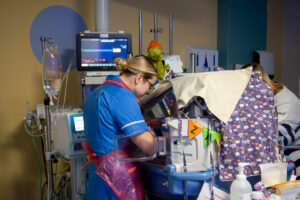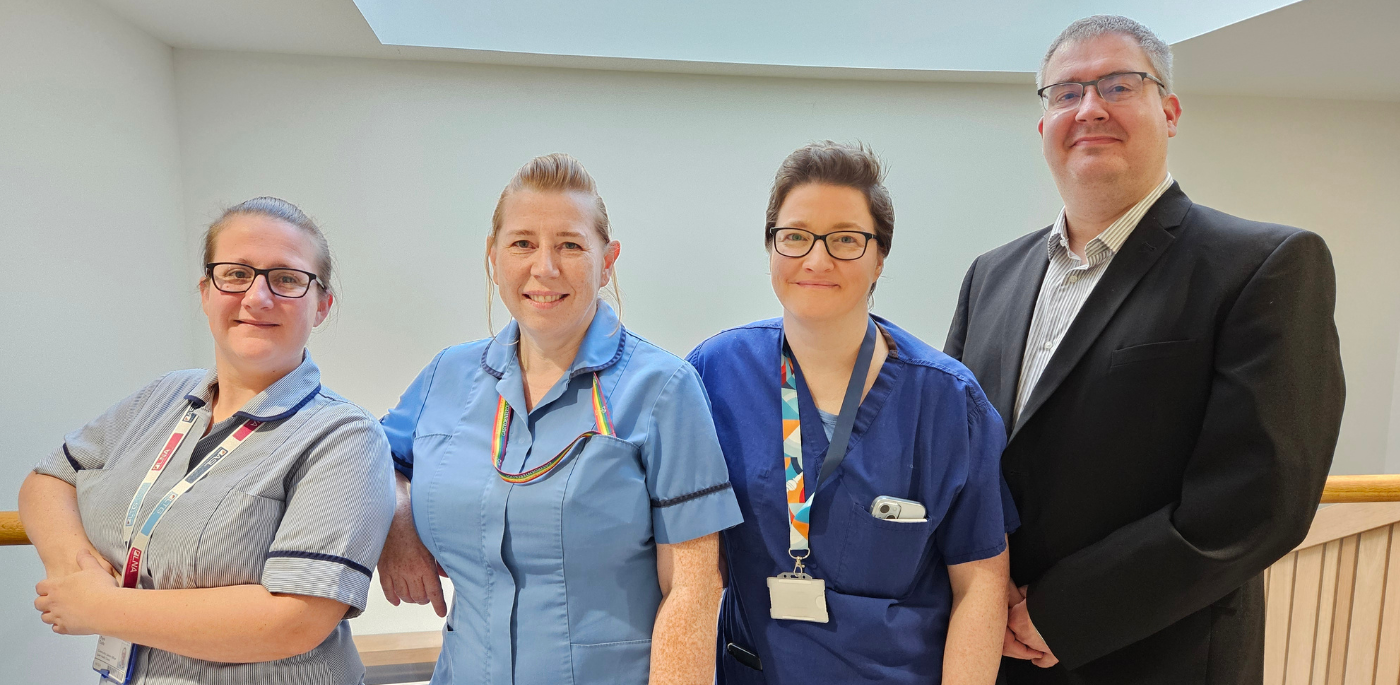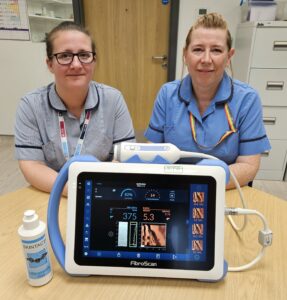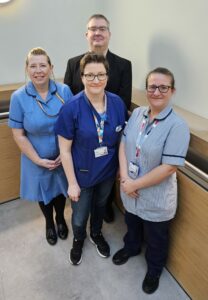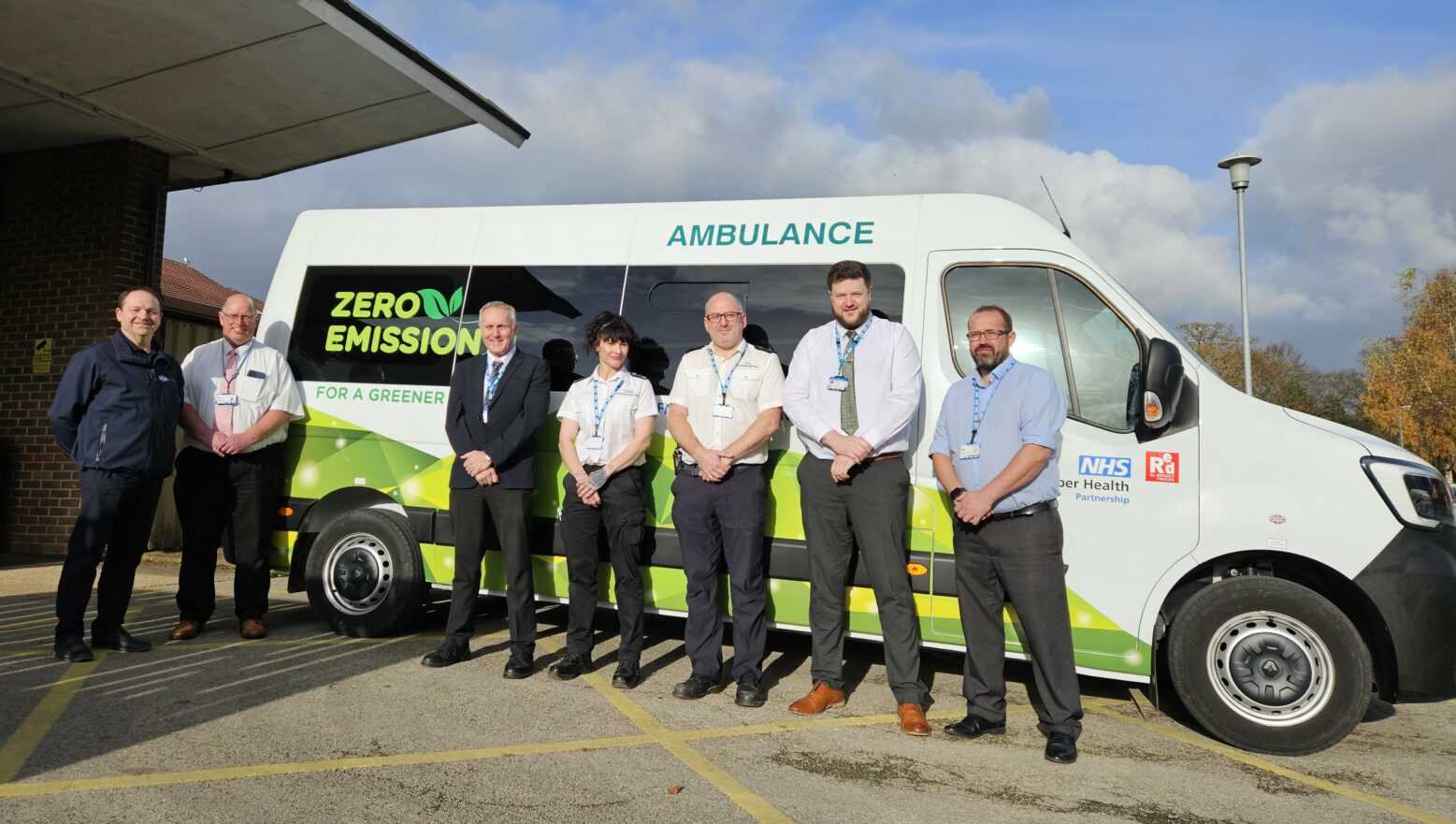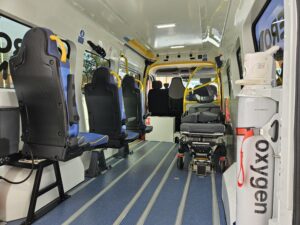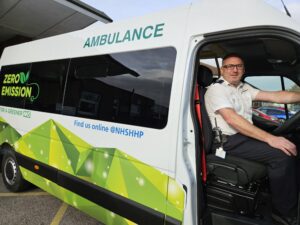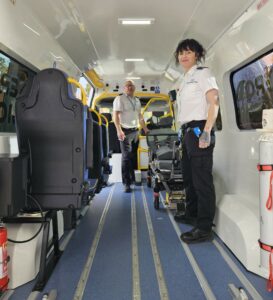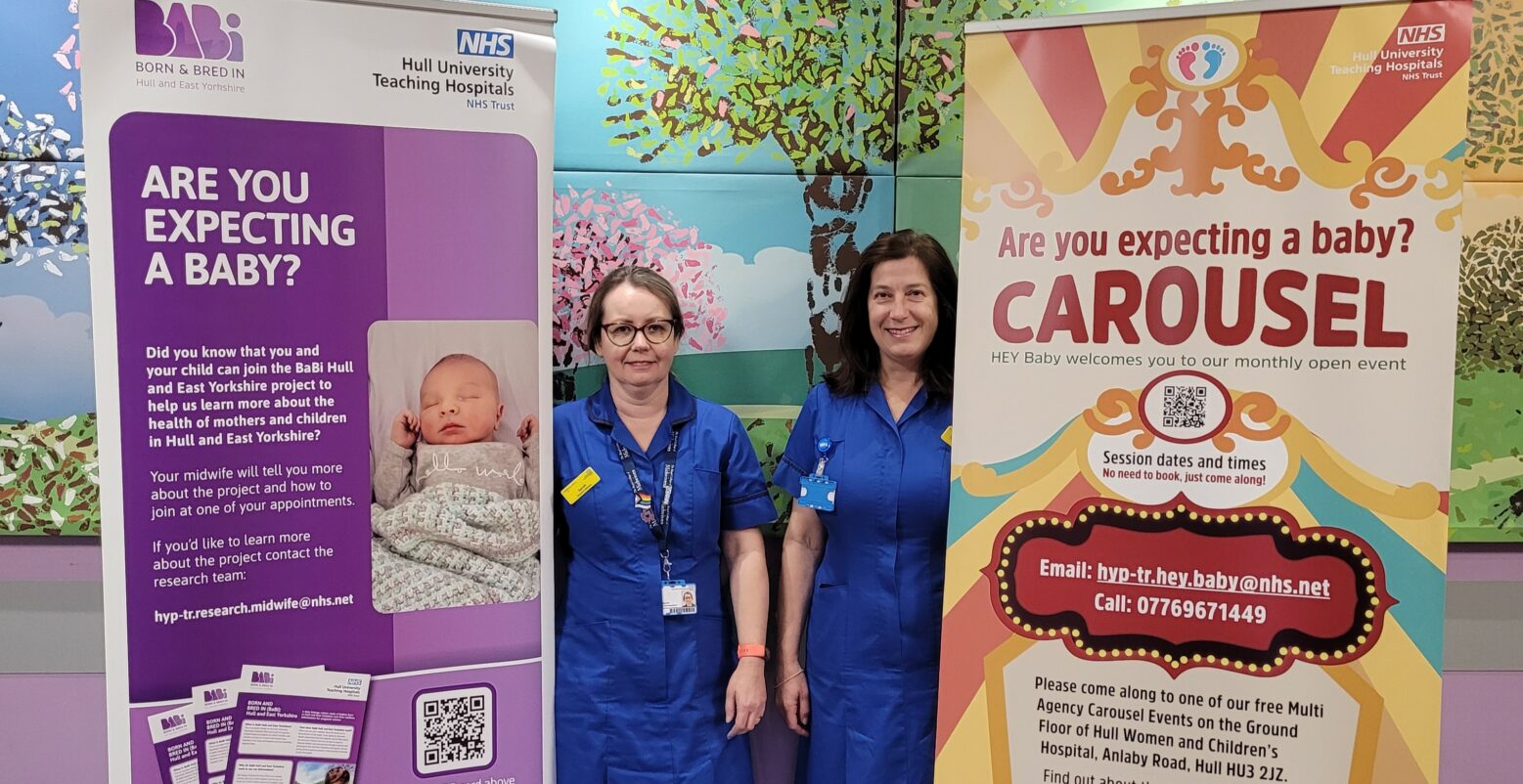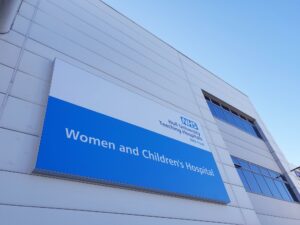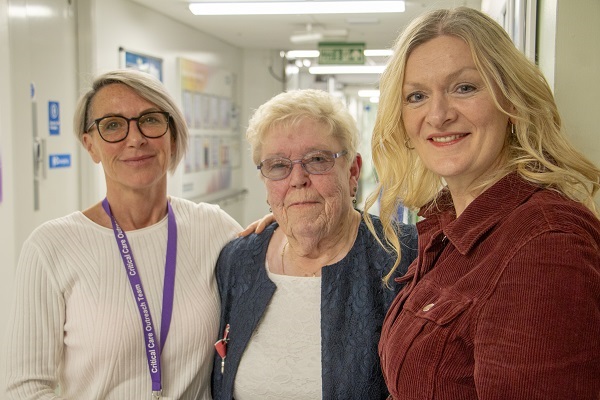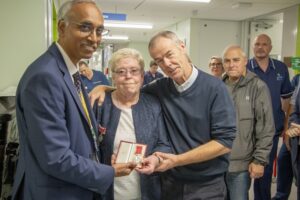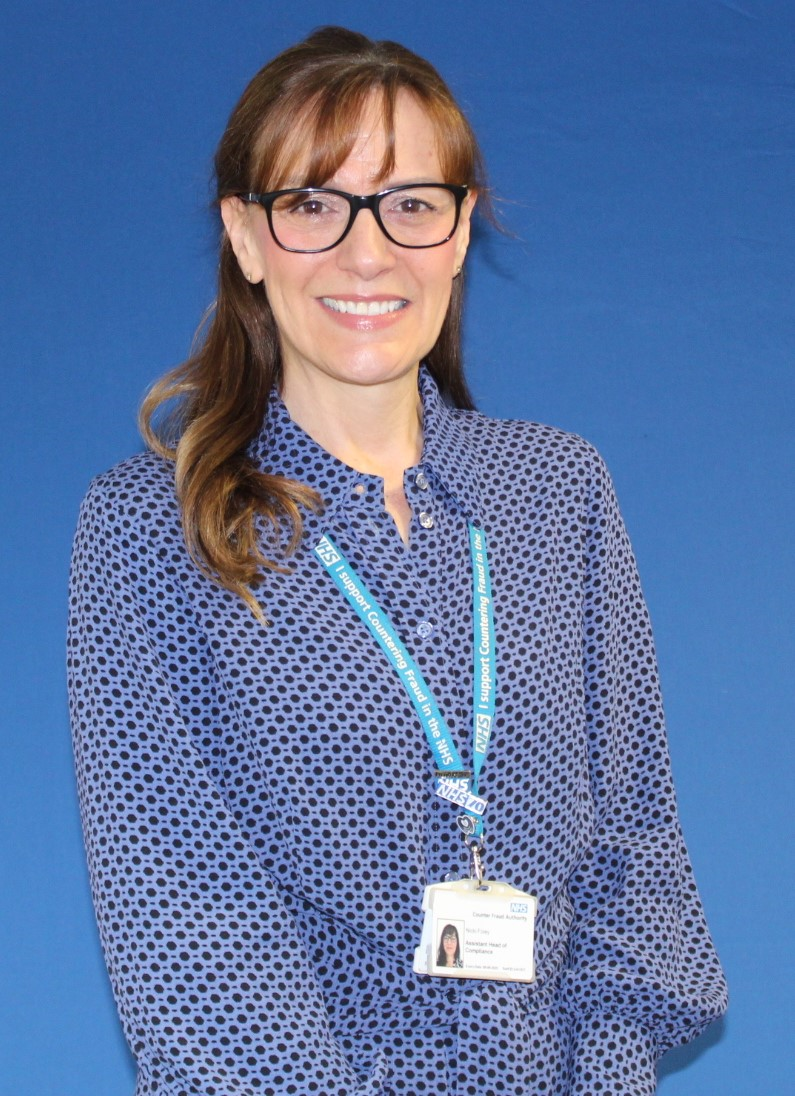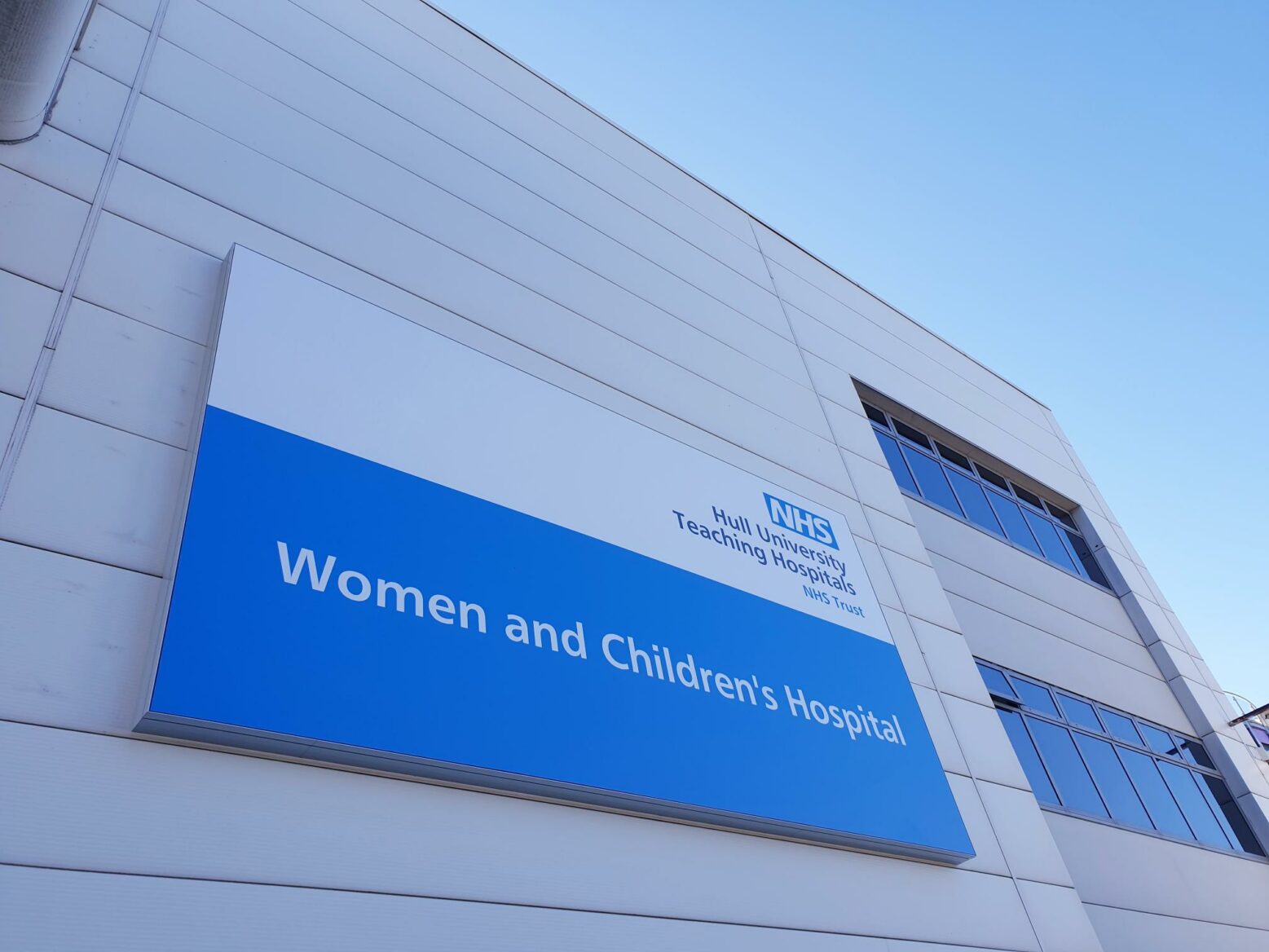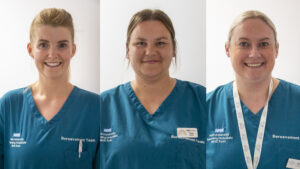She was born days after the National Health Service was created and dedicated almost six decades of her life to caring for others.
Now, Maureen Scaife has finished her last shift as a staff nurse at the age of 76 after completing 58 years’ service to the NHS.
“A lot of the nurses I’ve mentored over the years have said that if they had to come into hospital, I’d be the one they’d want to look after them,” says Maureen, presented with the Chief Nurse’s Award at the Nursing, Midwifery and Health Care Professionals Conference in Hull on Monday.
“But it’s time for me to enjoy a bit of ‘me time’ now.”
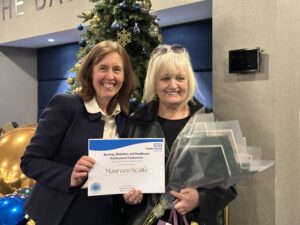
Group Chief Nurse Amanda Stanford, left, with Maureen Scaife
Maureen was born in Beverley Road on July 31, 1948, 24 days after the NHS began. After leaving school, she went to work in the Jackson’s on Greenwood Avenue and, one day, when a customer collapsed in the shop, she rushed to help and the idea of a career in nursing began.
She started her training as a State Enrolled Nurse in 1966, learning on the job as she worked shifts in local hospitals including Hull Royal Infirmary, Kingston General, the Sutton Annex.
Maureen was one of the student nurses chosen to form an arc of honour as the Queen officially opened Hull Royal Infirmary in June 1967.
When she qualified in 1969, she worked on the brand-new geriatric unit at Castle Hill Hospital. “Back in those days, geriatric patients were kept in cot beds but this new unit was all about getting them dressed in their own clothes, getting them to a table to eat meals and generally treating them better.
“When you first started nursing, you were always put on the geriatric wards because they said it would make or break you. It was hard graft back then. There were no hoists or slide sheets so there was a lot of lifting and you’d to feed everyone as well. It was really hard when I first started but I managed it.”
It was progress, and Maureen, who had two children, had a ringside seat as patient care continued to evolve over the years. She worked in different wards over the years including the Young Disability Unit (YDU), a rehabilitation unit at Castle Hill, and Ward 22, then a respiratory ward.
Known affectionately by the many colleagues who have worked and learned alongside her as “Maureen 118” after the series of radio adverts, Maureen watched hospital care become more patient-focused over the years, with people given more choice about how they wished to be treated. “Back in the day, if the matron said a patient had to be bathed, that was it – they were bathed and no questions asked.”
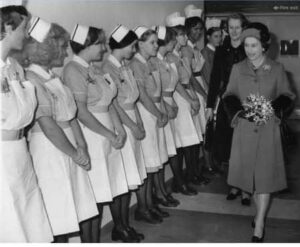 Her partner died of a brain haemorrhage in 1999 and she transferred to surgical wards on the sixth floor of Hull Royal Infirmary, moving closer to the hospital so she could walk to work. At the same time, she converted her SEN registration to qualify as a State Registered Nurse after two years of studying at university.
Her partner died of a brain haemorrhage in 1999 and she transferred to surgical wards on the sixth floor of Hull Royal Infirmary, moving closer to the hospital so she could walk to work. At the same time, she converted her SEN registration to qualify as a State Registered Nurse after two years of studying at university.
At 65, she retired from her full-time job in surgery and went onto the bank, picking up shifts mainly on Ward 5 looking after patients with respiratory problems.
When Covid began, Maureen was kept away from working on the Covid wards because of her increased risk of the virus because of her age. Instead, she worked in the Patient Discharge Lounge, where she’s worked for the last four years picking up about two or three shifts a month./
“The patients used to say I was ‘old school’ because of how I worked,” she says. “Matrons were different in those days and we used to stand to attention when they came onto the wards.
“But I really enjoyed the camaraderie on the YDU and Ward 5 and there’s no doubt that I’ve seen massive improvements in patient care. You don’t see bed sores in patients now compared to what we used to see and we didn’t have link nurses in the 1970s like we do now. Nursing has come on leaps and bounds.”
Now, the time’s right for Maureen to retire fully and she’s spending her time meeting her friends and former workmates for coffee, enjoying days out to the East Yorkshire coast and York.
Amanda Stanford, Group Chief Nurse at Humber Health Partnership, the organisation running Hull University Teaching Hospitals and Northern Lincolnshire and Goole Foundation Trust, paid tribute to Maureen.
Amanda said: “She has spent her entire career caring for our patients and I want to offer my heartfelt thanks to Maureen for everything she’s done for us and the people we look after.
“Many of our staff have benefited from Maureen’s vast experience and we thank her for how generous she’s been to share her knowledge and skills with countless other members of staff over the years.
“We hope Maureen enjoys her well-deserved retirement after dedicating her entire career to nursing and the care of other people.”

